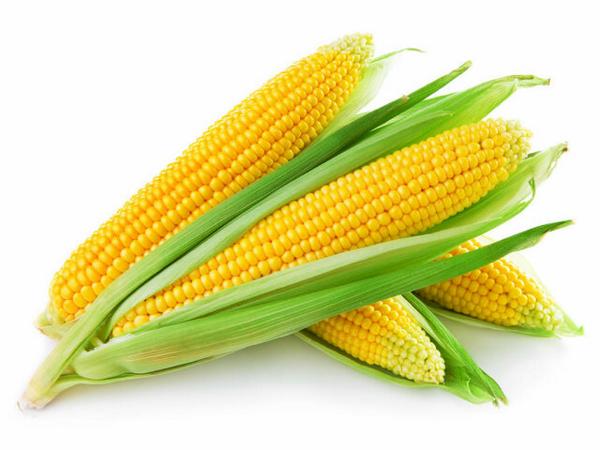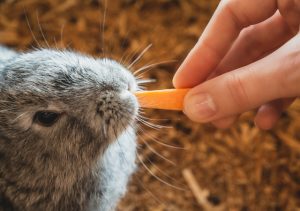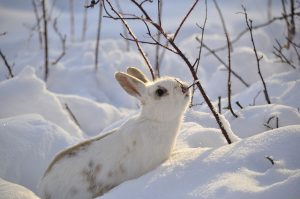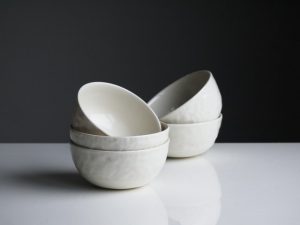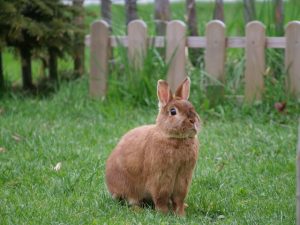Can rabbits eat corn?
When people search information regarding "can rabbits eat corn?" they find some controversion out there. This is because to some rabbits bad digestion happens right from the start and to others only after a while. The truth is corn is not poisonous but there is a real risk when you choose to feed it.
Here is why corn (fresh, dried, or cooked) is not safe for rabbits:
1. Corn kernels (plus other types of seeds) have hulls that are indigestible to rabbits. These hulls have a different composition from plant cell walls (cellulose and pectin). We're talking about the polysaccharide complex, that rabbits cannot actually digest. The main concern here is intestinal blockages and wounds that hulls can make. That can lead to regretful consequences.
2. Rabbits cannot eat corn on the cob even if it’s cooked. The hull doesn't break down and can very easily cause a blockage of the GI tract. Corn is way too starchy to be good for a bun's diet or digestion. It also contains far too many carbs and way too much sugar for rabbits.
3. Fresh corn can be problematic if eaten in large amounts. Because it is not dried, it can be swallowed without much chewing, leaving the hull intact. This could sequentially lead to minor intestinal impaction. A rabbit's bacterial flora has a difficult time breaking down corn hulls.
4. Nearly all corn in the USA is not 100% GMO-free.
5. Corn is without real nutritional value for rabbits (only a filler).
6. Corn happens to have mycotoxins in it, that could destroy your rabbit's health forever.
7. Corn husks are very stringy and hard to chew. Like the strings of celery, they can get caught into their trachea and cause serious problems. In general, corn husks are full of pesticides. There is no good reason to feed them to your bunny when there are so many other good things to feed him.
Why is this shady cloud above feeding corn to rabbits?
Even if you know a number of people who feed corn (whole ears of corn or other types of corns, normal-sized sweetcorn, baby corn, or dried corn) we advise you to always avoid it. Even if you say "just a couple kernels will do no harm", "moderate amounts will do no harm", you're still taking chances. There is also a big risk that they will drop weight fast, and not recover quickly.
The truth is there are plenty of other veggies which we know are safe for bunnies so why taking a risk we are not sure about. Besides that, they are not missing out something important. Corn is nothing but natural starchy carbohydrates.
There are a lot of rabbits out there who suffer intestinal impactions because of corn hulls. If they had to much corn and their fecal pellets are essentially pieces of corn hulls they probably need emergency medical treatment. Some rabbits are lucky and some are not.
A rabbit is a lagomorph, not a rodent. Rabbits have unique and very delicate digestive systems. Even though they are herbivores, they have very different dietary needs than other herbivores. The rabbit digestive tract resembles more to the one of a horse than of a rodent. Their body needs great amounts of foods that are low in energy, like fiber foods. They can suffer more than other animals from overeating starch and fat.
Here is why corn (fresh, dried, or cooked) is not safe for rabbits Rabbits have an exceptional organ, called the cecum, where fibers ferment. To keep things flowing properly they need to eat plant fiber (mostly hay). In this way, the stomach and the cecum will be able to empty properly. Without it, half-digested food will remain inactive inside his intestines for a long period of time. That can cause GI stasis and other stomach related health issues. Always remember that corn kernels with their hulls are completely indigestible for rabbits.
Why eating the right food matters so much for a healthy rabbit?
A poor diet is the number one cause of digestive problems in rabbits. By keeping starchy foods and indigestible materials like corn hulls out of their diet, you can considerably reduce their risk of potentially fatal diseases like gastrointestinal stasis. The majority of your rabbit’s diet should be made up of foods full of cellulose, such as hay and leafy greens.
Never feed junk food to your rabbit. Always avoid corn flakes; corn chips; cornbread; cooked corn; corn cooked on the cob, or corn pops. Avoid starchy foods or high sugar content foods such as legumes, beans (of any kind), peas, corn, oats, wheat, rolled oats and breakfast cereals, bread, nuts, pasta, potatoes, or seeds. Avoid any junk food like crackers, chips, chocolate, cookies, or any other type of refined sugar.
If your rabbit has eaten corn (or other food from the list above) and appears to be suffering from bloating, gas, or constipation (not producing fecal pellets anymore), look immediately for a vet. Any starchy, caloric, low-cellulose food is nutritionally empty for your rabbit. Corn's starch content and indigestible hulls can cause a digestive crisis.
When it comes to feeding rabbits vegetables you should only give them leafy greens and vegetables that are known to be safe for bunnies to eat. They should be getting about a cup full a day of different vegetables along with their normal diet.
https://www.youtube.com/watch?v=RsCCe73-ciY


